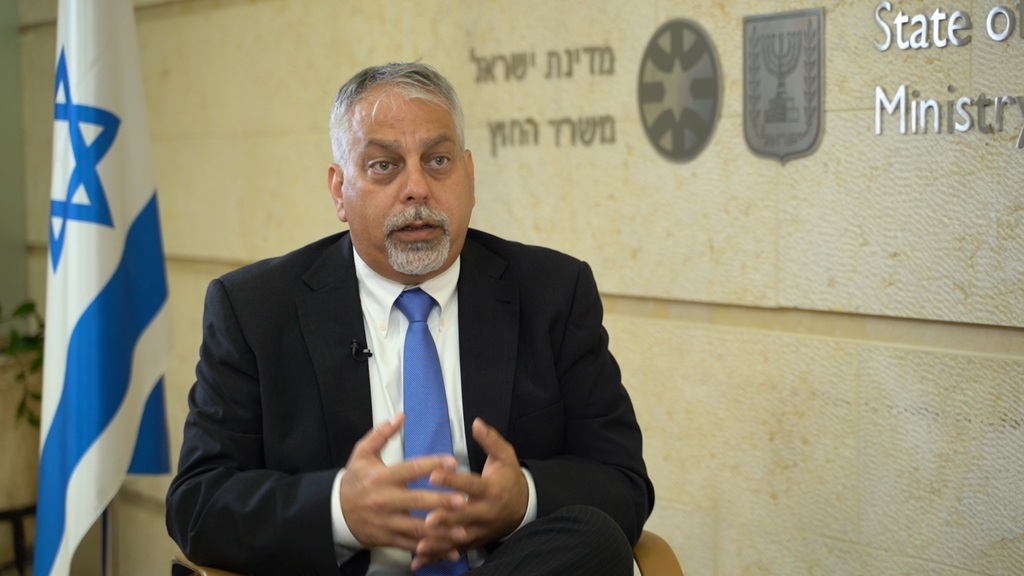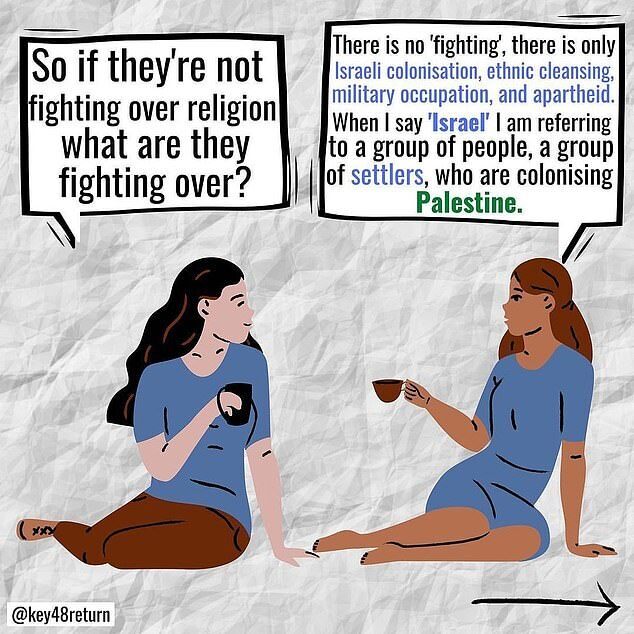Getting your Trinity Audio player ready...
Two weeks on from Operation Guardian of the Walls and there is quiet in the south. But Hamas fired thousands of rockets at Israel and still has that capability.
Let’s start by putting this whole operation into context. Israel wasn’t looking to start a military conflict with Hamas, a terrorist organization in Gaza. We did everything we could to avoid conflict and to avoid confrontation but it was a decision made by Hamas that had nothing to do with Israel.
This decision was internal dynamic politics within the Palestinian people and Hamas wanted to show their strength vis-à-vis the Palestinian Authority and they thought that attacking Israel and Israeli citizens is a way to do so.
8 View gallery
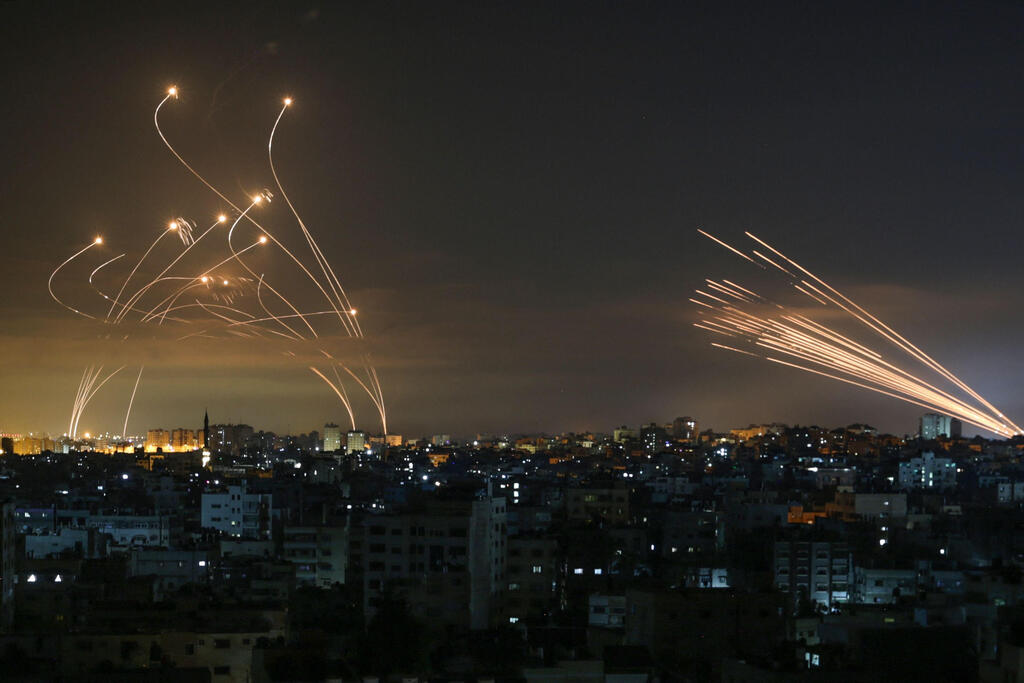

Iron Dome activates in southern Israel as rockets are fired from northern Gaza during the May 2021 conflict
(Photo: AFP)
Israel was under a terror attack by a terror organization the controls the Gaza Strip and what we did during the almost two weeks of Guardian of the Walls was to first of all try to stop the missile launching from the Gaza Strip unto the Israeli cities and also to damage the infrastructure of the terror organization Hamas and other terror organizations within the Gaza Strip.
And I don’t think we ended this operation in the same way we started [it]. Hamas took a huge hit to its powers. A lot of the things that Hamas prepared for a future confrontation with Israel are no longer available for its terrorist organization.
It doesn’t mean that Hamas is not in control of the Gaza Strip anymore but it does make a difference when we talk to the international community regarding how to move forward and to understand that we cannot go back to the day before.
Things cannot be the same. We can’t allow Hamas to regain its power and we cannot allow Hamas to take both Israeli citizens and Palestinian citizens of the Gaza Strip hostage in the hands of a terror organization deciding whether they want to start a military confrontation with Israel or not.
Why does Israel always wait to have to be on the offensive? They knew that the tunnel [system] was being built deeper and that there was an accumulation of rockets. It’s almost like this happens every five years.
First of all, we have no interest with starting a conflict with Gaza. Israel left the Gaza Strip in 2005 with no intention in going back there. It’s not our goal. We want to live in peace with our neighbors in the Gaza Strip and we really thought that the Gaza Strip could become an example for other places [of] how Palestinians can rule themselves.
Unfortunately, it became a territory that is controlled by a terror organization that actually took over in a military coup against the Palestinian Authority, killing hundreds of Palestinians while doing so.
The idea was that we didn’t think that Hamas had any objective of attacking Israel.
We understand that they have gained power in the Gaza Strip but there was an imbalanced situation that was relatively quiet to calm.
Israel had no intention of starting a military operation but we were prepared because we knew that that day might come and we prepared ourselves in two ways.
We prepared ourselves [by] defending our civilians. The Iron Dome was a great example of that. Over 90% of the missiles and rockets that were launched from the Gaza Strip were intercepted before they hit Israeli cities.
But we also prepared ourselves with intelligence of what’s going on in Gaza, knowing how to get the terrorists while they are attacking Israel.
8 View gallery
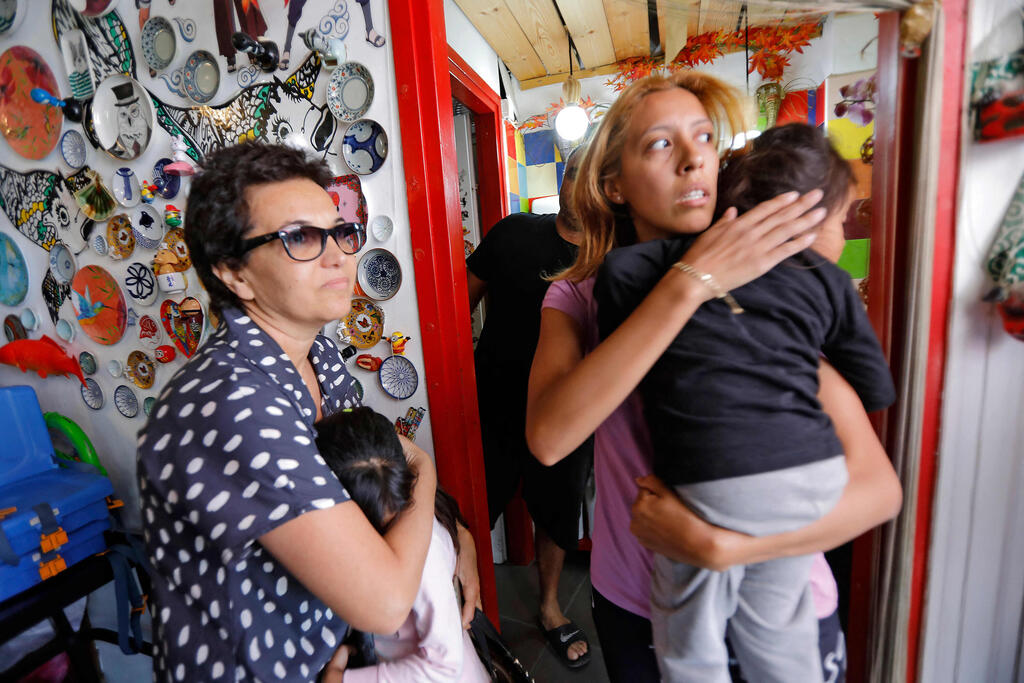

Israelis take shelter in a shop during a rocket attack on the central city of Bat Yam
(Photo: AFP)
Hamas and the Iranian proxies were looking at the capabilities of the Iron Dome missile defense system and how they could overpower it. What do you think they learned?
I think that they learned that the Iron Dome is very successful technology.
I don’t think that anyone could imagine this kind of technology in another place in the world. Ten years ago, if we hadn’t had this kind of technology, we would be looking at 10 times as many casualties on the Israeli side. Israel invested in defending its citizens.
Iran, the proxies, [and] other terror organizations in the region understand that Israel has the capability. True, it’s not 100% efficient but it’s very close.
One of the reactions I had on social media talked about how expensive Iron Dome is. Every missile launched from Gaza costs $2,000 [and what] we launched [in return] cost tens and hundreds of thousands of dollars.
Well, yes, we’re investing in defending our citizens. I wish the leadership of the Palestinian people would’ve done the same thing.
Instead, they are investing in attacking Israel and putting their civilians as human shields to protect the terrorists.
It has been said that the operation that we just saw was a mere 8% of what it might be if Hezbollah were to attack Israel. Defense Minister Benny Gantz just reiterated that. Is Israel prepared?
First of all, we need to be concerned. We live in a neighborhood that has terrorist organizations like Hamas, Islamic Jihad and others [who] see Israel as their enemies.
The fact that we’re concerned doesn’t mean that we’re not ready. I think that the lesson that the terrorist organization learned from this operation or others in the past, is that the cost of attacking Israel [is prohibitive].
Israel will defend its citizens and Israel will do whatever we can to stop the aggression and hit the infrastructure of the terror organization. This is the right and the duty of every government to defend its citizens.
On social media, the Hadid sisters were vocal on the Palestinian side while Gal Gadot and others were on the Israeli side. How do you view what’s happening on social media?
On social media, we are David and they are Goliath. It doesn’t mean that they are right. It doesn’t mean that they have more influence.
It doesn’t mean that 30 million followers of one of the models that you mentioned are interested in what’s going on between the terror organization Hamas and Israel.
I think they are more interested in the way they are models dressed and what they choose to wear, so this is one part.
I think that the message, most of the messaging that Israel was under attack did go through and we saw that. We saw that in polls. We saw that we did [so] in Europe and we did [so] in the U.S. We saw that in numbers. We saw that in places where there were demonstrations against Israel that were very small compared to other operations in the past.
There were a lot of demonstrations supporting Israel, not only by Jewish communities or Israelis living abroad but also by other groups that understood that Israel is under a terrorist attack and if you don’t support Israel in this time, you will have the same situation in your country in the future.
What do you think is going wrong? Why is Israel failing in a way to get the messages they are trying to get out to the world?
I don’t think Israel is failing. I think that we have priorities and the first priority is defending our citizens. We will not allow Hamas to kill more Israelis just to gain more support around the world.
We created the State of Israel to create or to build a safe place for Jews around the world. We invest a lot in creating this safe place. There is no other country in the world [where] kindergartens are actually shelters [so] that kids could play in a safe place for them.
The other side is doing the exact opposite. They are defending terrorists. They are investing in the way they could attack Israelis, while leaving their citizens as human shields to die and to gain their propaganda around the world by celebrating the death of their own citizens.
Israel’s goal is to defend the Israeli citizens. The second goal is also to defend the Palestinians [who] were not involved. We will not just sit and allow the Hamas, as a terror organization, to kill us, just to be more popular around the world. This is not how Israel will act.
8 View gallery
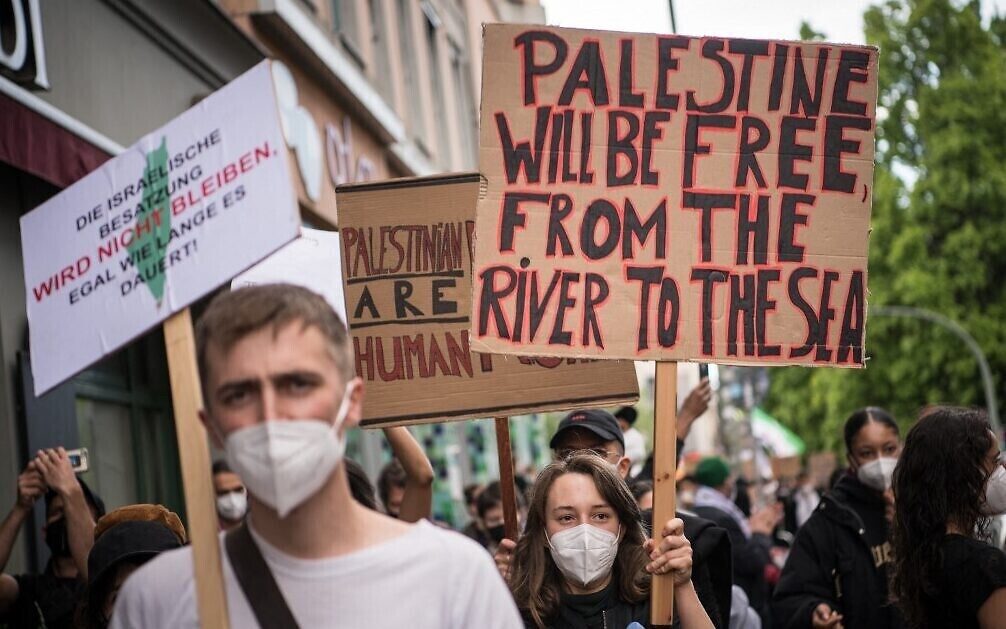

Pro-Palestinian activists in Berlin demonstrate against Israel during the May 2021 fighting
(Photo: AFP)
The war was with Hamas. It wasn’t necessarily with the Palestinian people. Did that message get out?
The war wasn’t with Gaza. The war was against Hamas, a terror organization. A recognized terror organization. Unfortunately, the media coverage of that part wasn’t entirely correct.
In the international media, the way they portrayed the message was as a war between Israel and the Palestinians and I don’t think that’s the truth.
Israel was in a military conflict with a terror organization. This terror organization controls the Gaza Strip but we are not in a conflict with the Palestinians that live in the Gaza Strip – [but] only with the terrorists.
8 View gallery
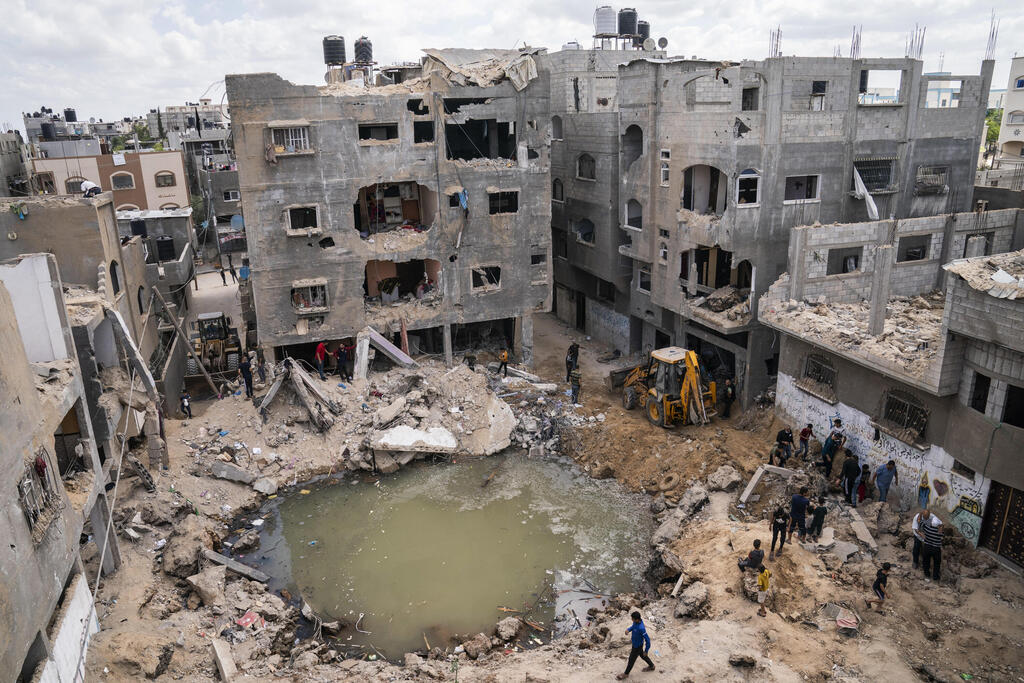

The aftermath of an IDF strike on the northern Gaza Strip during the May 2021 conflict
(Photo: AP)
Every time we are in a conflict with Hamas in the Gaza Strip, it’s only directed at the terrorists and the terror infrastructure. Unfortunately, Hamas is using and abusing the people of the Gaza Strip in order to defend their terror infrastructure. And I would say another thing.
One of the problems we saw was [when] you saw one side of the conflict is Israel. You saw Israelis defend themselves. You saw Israelis in shelters. You saw the Iron Dome operatives that were actually very successful in this operation.
On the other side, you wouldn’t see the Hamas militants, terrorists. You would see only the Palestinians and that created the situation like that or the image that Israel is fighting the Palestinians.
We had no conflict with the Palestinians of Gaza. We have no conflicts with the Palestinians of Gaza. We do have a conflict with a terror organization named Hamas and others that control the Gaza Strip.
And yet this also did weaken the Palestinian Authority. How does that bode for the future?
I think that the inner politics of the Palestinians shouldn’t be an issue that Israel deals with from outside. I do think that the Palestinians wouldn’t gain anything by allowing Hamas to be in power.
I don’t think that the region will gain anything if we allow a terror organization to be the leading voice of the Palestinian people.
And I don’t even think that the international community will gain anything by allowing Hamas to be the leadership or to gain the leadership of the Palestinian people.
Hamas is not just a problem for Israel. It’s a problem for the Palestinians. It’s a problem for the region, because there are other countries that deal with similar terror organizations with the same ideology, like ISIS [and] al-Qaida, like the Muslim Brotherhood in different places, and it’s a problem.
Also, Hamas is a huge problem for the international community. Those who seek to help the Palestinians, shouldn’t support Hamas gaining control over the Palestinian Authority.
8 View gallery
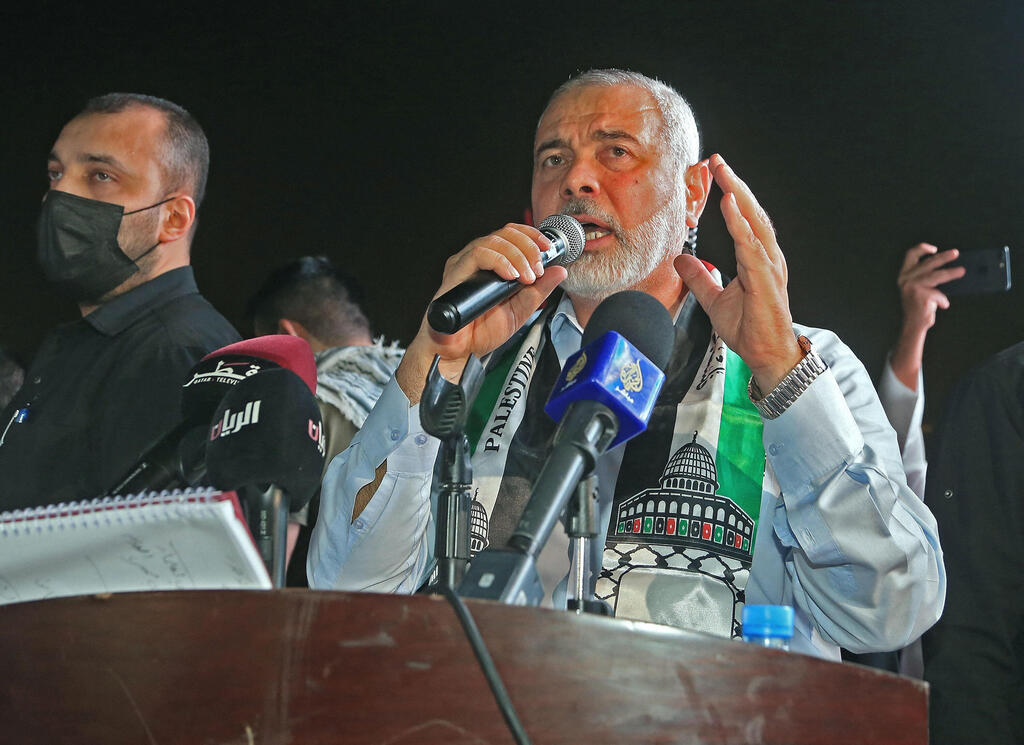

Hamas leader Ismail Haniyeh speaking in the Qatari capital of Doha, where he lives, during the May 2021 conflict
(Photo: AFP)
In past conflicts, Israel has set up field hospitals for humanitarian aid to assist the Gazan people. Why not now?
Haiat: Actually Hamas. We wanted to send international humanitarian aid to the Gaza Strip and every time we tried, Hamas bombed the checkpoints.
It was very clear to us, because they knew that those are humanitarian aid trucks that are coming into Gaza.
They didn’t want it. They didn’t want the humanitarian aid coming into Gaza. They live out of the misery of their own people. This is a terrible situation. This is a tragedy.
8 View gallery
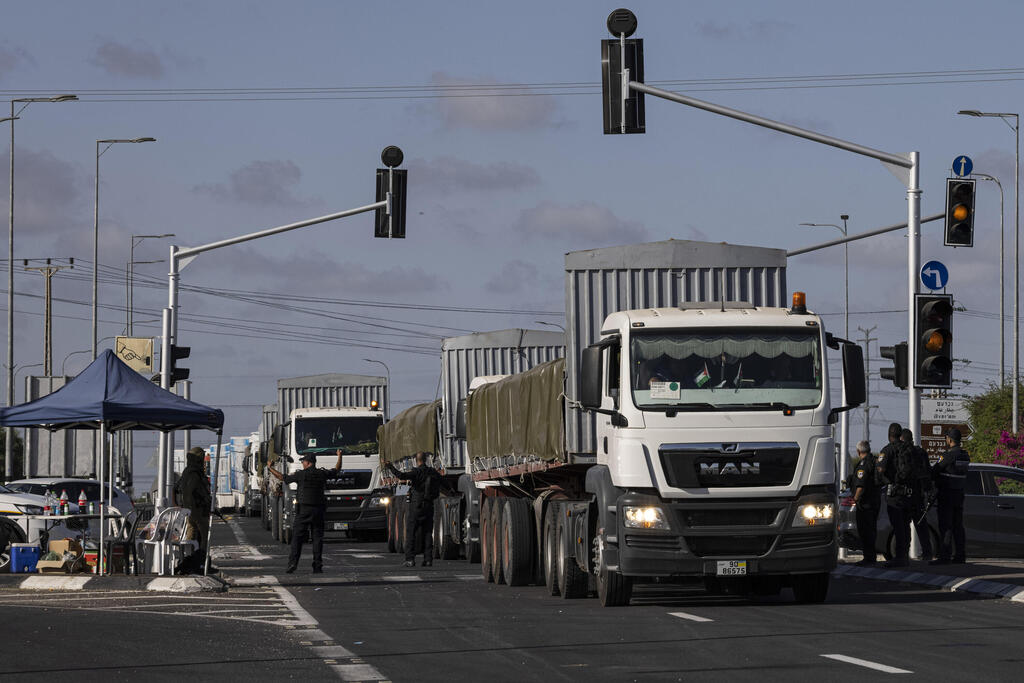

Humanitarian aid heading for Gaza from Israel during the May 2021 conflict
(Photo: AP)
The real tragedy of the Gaza Strip is Hamas and when people say, “Free Gaza,” I totally support it. Free Gaza from Hamas.
I think that Gaza could have been and could still be in the future a great place for Palestinians to live, if not under a terror organization.
Reprinted courtesy of The Media Line
Some comments were edited for clarity


